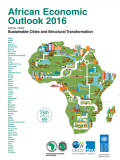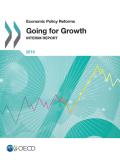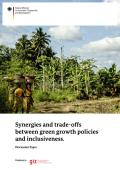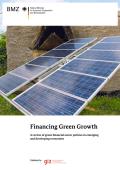
The African Economic Outlook (AEO) 2016 presents the current state of economic and social development in Africa and projects the outlook for the coming two years. The AEO is a product of collaborative work by three international partners: the African Development Bank, the OECD Development Centre and the United Nations Development Programme.
The AEO 2016 shows that the continent is performing well in regard to economic, social and governance issues and has encouraging prospects for the near future. With its special theme on sustainable cities and structural transformation, this edition looks closely at Africa’s distinctive pathways towards urbanisation and at how this is increasingly shifting economic resources towards more productive activities.

Going for Growth is the OECD’s regular report on structural reforms in policy areas that have been identified as priorities to boost incomes in OECD and selected non-OECD countries (Brazil, China, Colombia, India, Indonesia, Latvia, Russian Federation and South Africa). Policy priorities are updated every two years and presented in a full report, which includes individual country notes with detailed policy recommendations to address the priorities.The next full report will be published in 2017.
This interim report takes stock of the actions taken by governments over the past two years in the policy areas identified as priorities for growth. This stocktaking is supported by internationally comparable indicators that enable countries to assess their economic performance and structural policies in a wide range of areas.

Over the past 20 years, two major challenges have dominated international debate on sustainable development: the imperative of environmental protection and the eradication of all dimensions of poverty. Economic growth lies at the heart of both these issues. It is required to reduce poverty but, at the same time, needs to be decoupled from natural resource use and greenhouse gas emissions in order to preserve the livelihoods of current and future generations. Several concepts aim to reconcile this dilemma and offer much to delineate green and inclusive growth, many important aspects remain vague. However, it is important to facilitate a systematic assessment of interactions (i.e., synergies and trade-offs) between the green and inclusive dimensions of growth as it is a central concern of policymakers.

This study highlights the role of the entire financial system in the transition to a green economy and reviews green financial sector policies in emerging and developing economies. It focuses on the political and legal framework conditions, which are essential for a successful financing for green growth. On the basis of ten case studies in emerging and developing countries, the study investigates which strategies, policies and specific policy instruments have been applied at the national level, and how these have directly or indirectly influenced the actions of organisations operating in the financial sector. The study also aims to provide an analytical framework for key stakeholders (governments, donor institutions and the private sector), providing guidance before initiating and building a conducive framework for financing green growth.

This report looks at fiduciary duty across eight markets (US, Canada, UK, Germany, Brazil, Australia, Japan and South Africa) through a series of events, interviews, case studies and a legal review. It finds that fiduciary duties have played, and continue to play, a critical role in ensuring that fiduciaries are loyal to their beneficiaries and carry out their duties in a prudent manner. It concludes that fiduciary duty is not an obstacle to asset owner action on environmental, social and governance (ESG) factors and it recommends that all of the players in the investment process take specific actions in order for ESG to be implemented on a truly global scale in order to move towards a sustainable financial and economic system.
